Why Charlotte Rise FC Goalkeepers Train Side-by-Side with Field Players
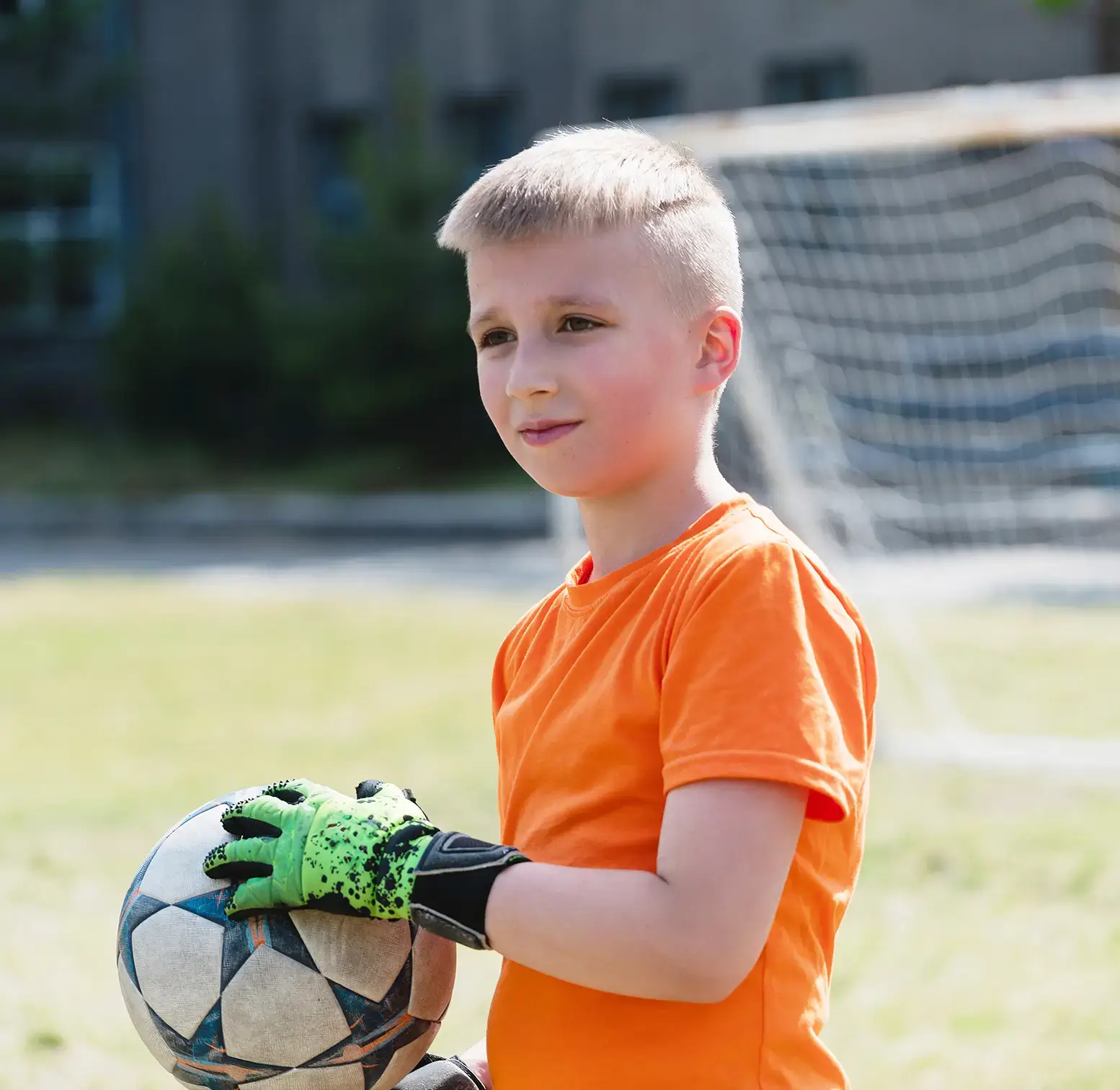
CRFC BLOGS
LATEST BLOGS & NEWSLETTERS
Why Charlotte Rise FC Goalkeepers Train Side-by-Side with Field Players
Modern youth soccer is breaking down positional silos. Today’s goalkeepers need foot skills and tactical awareness, just like field players.
- Goalkeeping demands have evolved, it’s no longer just about shot-stopping.
- Many pro goalkeepers now start as field players before specializing.
- Blending sessions improve passing, pressing, and vision.
- Field players also learn from the goalkeeper’s perspective, such as how to support on back-passes.
- Better chemistry builds when every player understands all roles.
Integrated sessions help develop confident, complete players, no matter their eventual position.
The Psychology of Feeling “Part of the Team”
Youth goalkeepers often feel isolated or ignored, especially when they’re training alone behind the net.
- Shared drills build emotional belonging, not just technical skills.
- Peer learning increases motivation and effort.
- Kids build complete athletic identities not just “goalie-only” mindsets.
- Reduced stigma around the position leads to more volunteers.
- Confidence rises when goalkeepers are equally coached and included.
When goalkeepers feel seen, they stay longer, train harder, and take pride in their unique role.
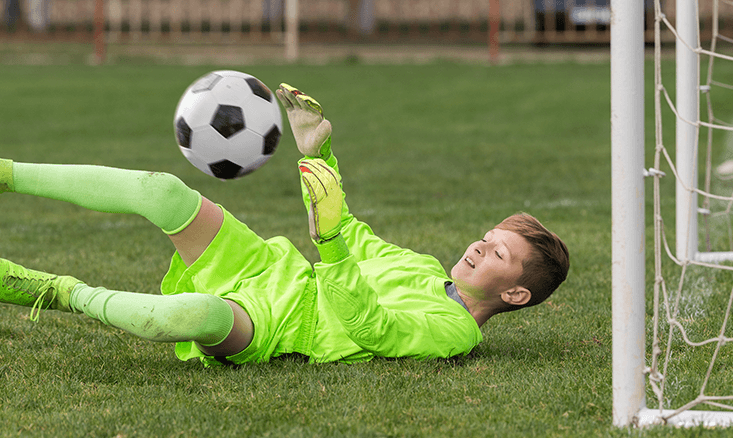
Early Footwork Matters for Keepers Too
Quick, confident feet start around the age of 4 and benefit everyone, not just forwards or midfielders.
- Side-by-side cone and ladder work improves coordination.
- Early exposure to ball control prevents clunky technique later.
- 1v1 drills teach timing, angles, and decision-making.
- Shared games force all players to think actively.
- Goalkeepers become better passers and safer outlets under pressure.
You can’t build distribution skills at 14 if you skip footwork at a young age.
Better Decision-Making Starts in Group Scenarios
Decision-making is a skill, and goalkeepers develop faster when exposed to real-time team dynamics.
- Reading play from the back requires group awareness.
- Small-sided games simulate game pressure.
- Integrated scrimmages test positioning, communication, and courage.
- Seeing attacking patterns sharpens the goalkeeper’s reaction.
- Goalkeepers learn to command a defense, not just react.
The more game-like the session, the more game-ready the goalkeeper.
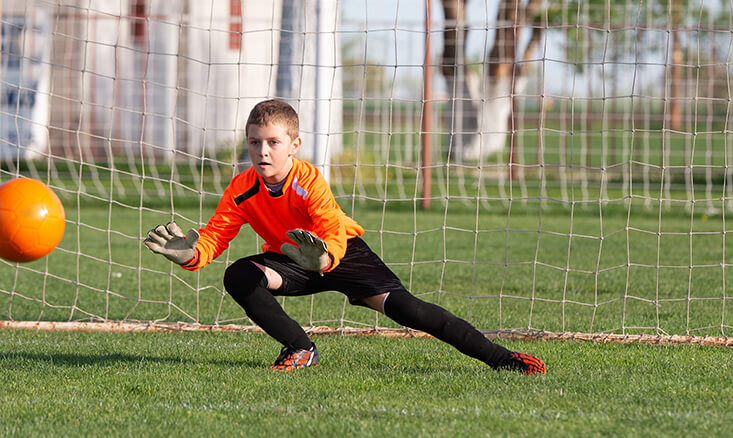
Field Players Benefit from Goalkeeper Integration Too
Integrated training doesn’t just help goalies; it’s a win for the entire team.
- Players learn how to support and protect their goalkeeper.
- Improved back-pass technique and decision-making under pressure.
- Crossing drills gain purpose when real goalkeepers are involved.
- Tactical awareness of the “last line” improves team shape.
- Defenders build real-time trust with their goalkeeper.
Teaching players how to work with a goalkeeper increases retention and game IQ across the board.
Lowering the Barrier to Trying Goalkeeping
The stigma around trying goalie fades when training is shared, inclusive, and non-isolated. At Charlotte Rise FC:
- Players rotate through drills before specializing.
- No fear of being “stuck” in a role they don’t understand.
- Coaches spot natural talents early in multi-role sessions.
- Reduced pressure equals more confidence to try something new.
Early exposure to Goalkeeping leads to long-term love for it.
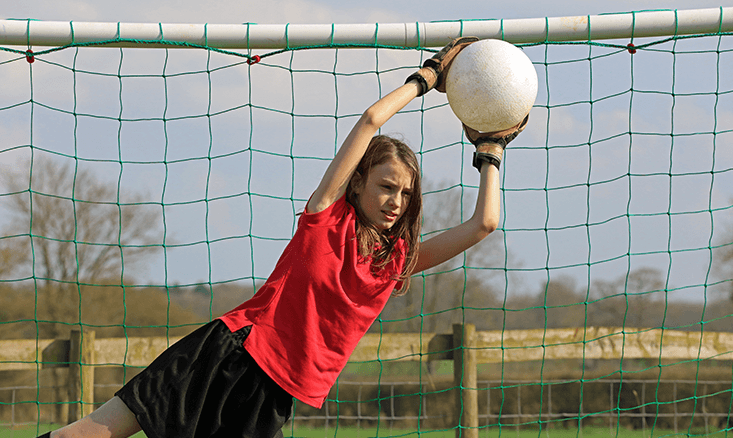
How Charlotte Rise FC Integrates Goalkeeping Across All Programs
Our process builds long-term development.
- Goalkeeper training is part of every seasonal camp.
- U5–U12 Rising Stars rotate through basic goalkeeper techniques.
- Academy Teams build goalkeeper skills alongside field players weekly.
- Private and futsal sessions also include distribution and footwork.
- Our coaching staff collaborates across roles to align every drill.
Integrated goalkeeper development is built into every stage of our pathway from Rising Stars to U19.
Coach Caitlyn’s Goalkeeping Curriculum Philosophy
Our Goalkeeping Coach leads with confidence-building and complete player development in mind.
- Goalkeeping skills are layered in gradually and age-appropriately.
- Every goalkeeper receives 1-on-1 feedback and match breakdowns.
- She trains footwork before diving, especially at younger ages.
- Uses fun, game-based formats to reduce fear and boost focus.
Coach Caitlyn’s style helps every goalkeeper feel seen, coached, and respected starting from day one.
Questions Parents Should Ask About Goalkeeper Development
Not all programs give goalies the attention (or integration) they deserve. Ask better questions, get better outcomes.
- How often do goalkeepers train with the team?
- What do your youngest age groups teach goalkeepers?
- Can field players try goalkeeper training and vice versa?
- Do goalies get individualized plans or just scrimmages?
- Is there a specific goalkeeping coach on staff?
Inclusion isn’t just nice, it’s essential for development and long-term retention.
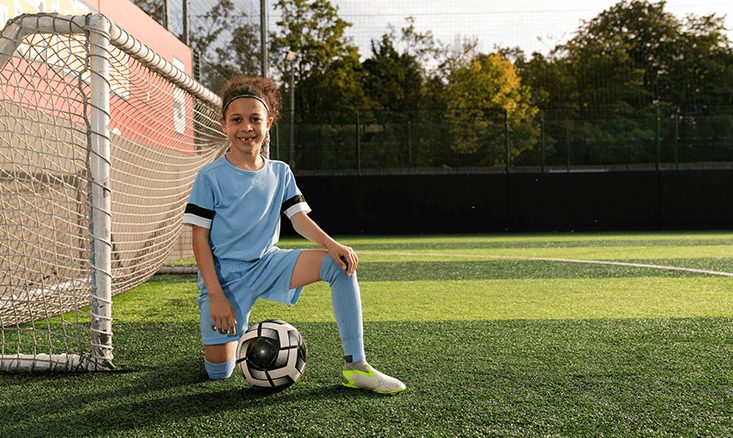
5 Ways Parents Can Support a New or Curious Goalkeeper at Home
Your support outside of practice builds confidence inside the net.
- Praise effort, not results.
- Watch games together and point out great positioning.
- Set up low-pressure backyard drills for fun.
- Rotate between the goalkeeper and striker in play.
- Let them express fears; don’t force “toughness.”
Conclusion:
Youth goalkeepers shouldn’t train in the shadows. They need reps, feedback, and community, just like any player. By training side-by-side, they gain footwork, decision-making, and a sense of belonging that sticks for life.
At Charlotte Rise FC, every goalkeeper is seen, developed, and valued.
Frequently Asked Questions (FAQs)
At what age should players start goalkeeper training?
Most kids can start learning basic goalkeeper skills between the ages of 4 and 8, mainly through fun, low-pressure games.
Do goalkeepers train with the rest of the team?
Absolutely. Our goalkeepers train side-by-side with field players to improve teamwork, decision-making, and foot skills.
Is special coaching available just for goalkeepers?
Yes, we offer goalkeeper-specific coaching as part of every camp, plus optional 1-on-1 and private training sessions.
How do I know if my child would enjoy being a goalkeeper?
Try it! Most players discover they like the role through integrated drills and fun challenges, not by being forced into it.
What makes Charlotte Rise FC’s goalkeeper training different?
We integrate Goalkeeper development at every level from Rising Stars to our Academy Teams program.
How can parents support their young goalkeepers at home?
Play together, watch games, ask questions, and keep it fun, emotional support matters just as much as practice.

Did you find this useful?


